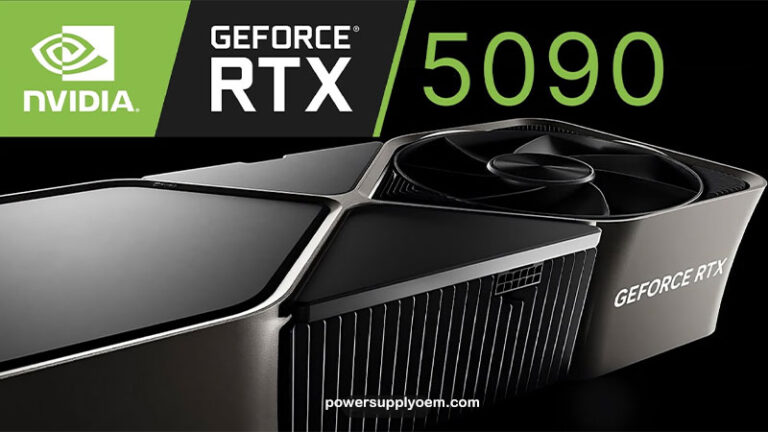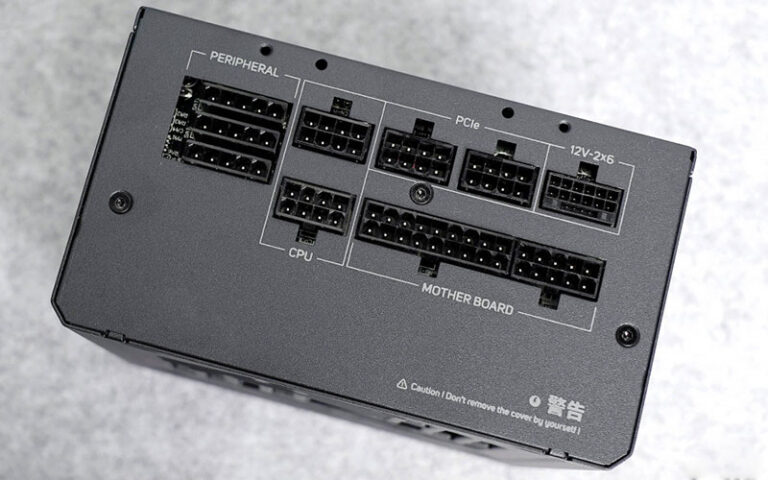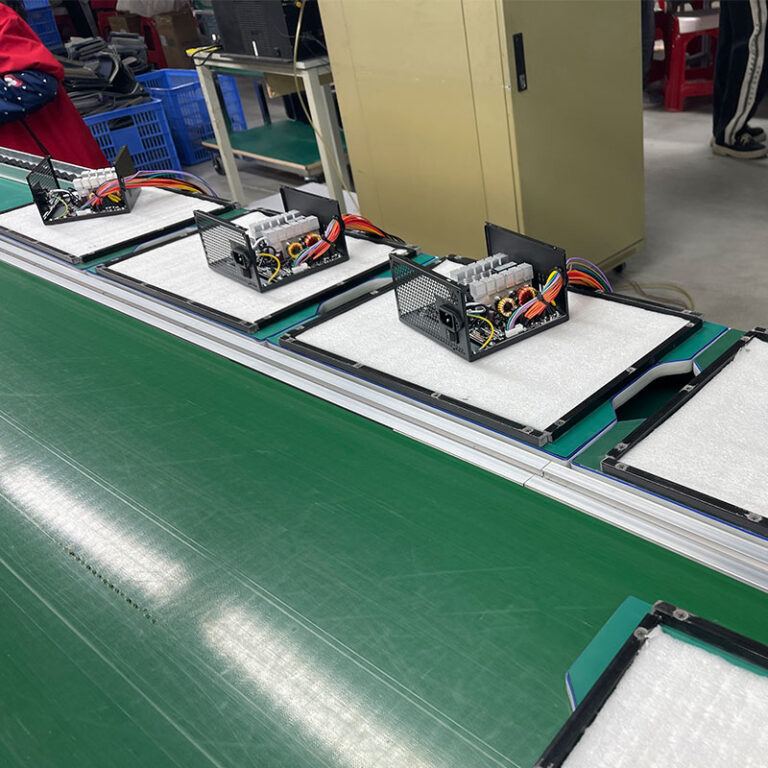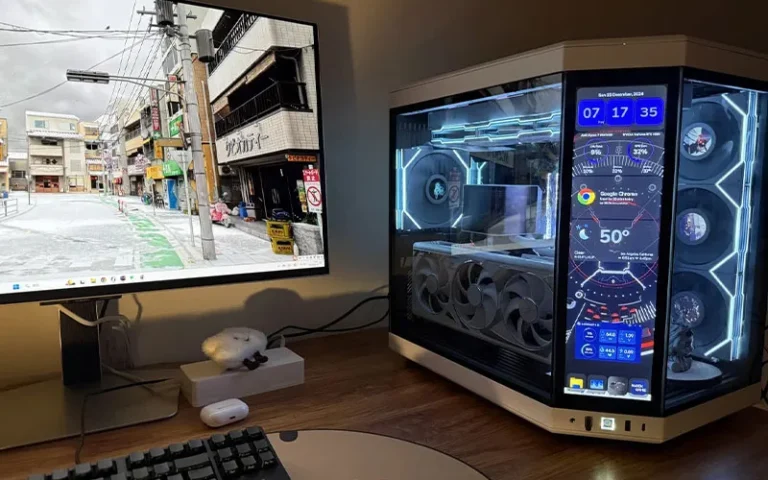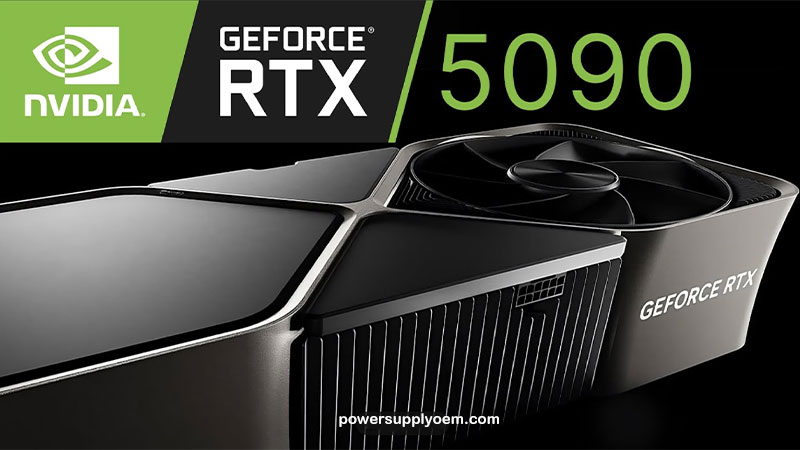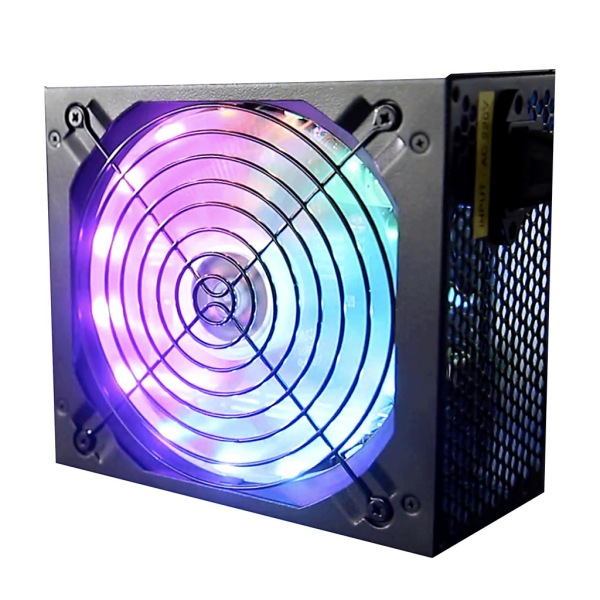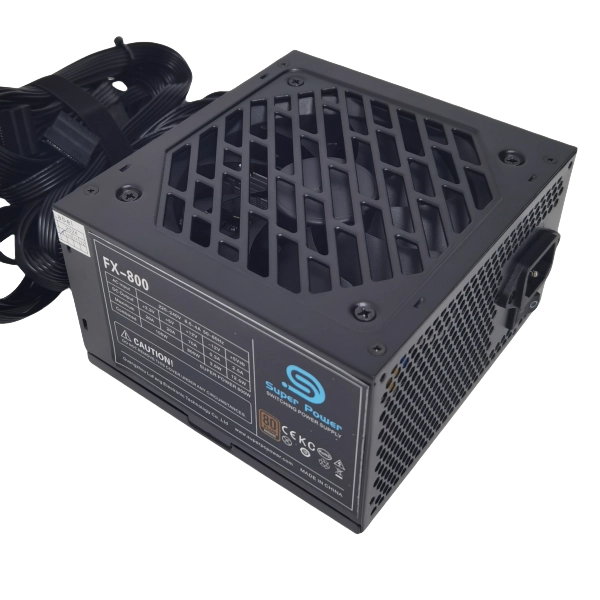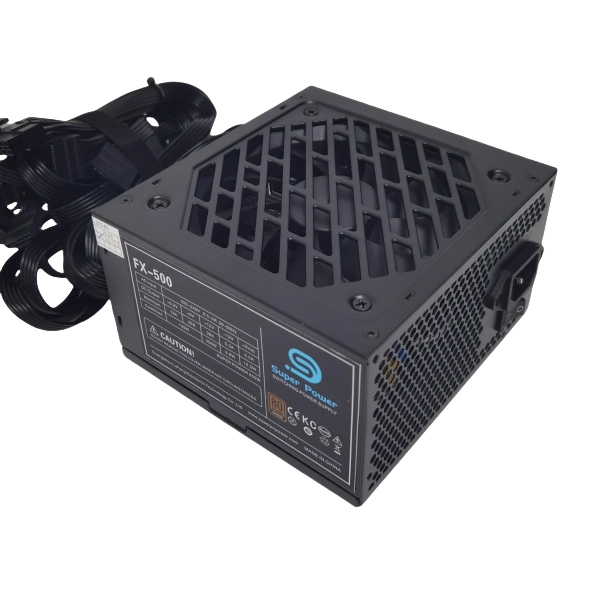-
Building E, No. 65 Xingshan North Road, Liangtian, Baisha Industrial Park, Baiyun District, Guangzhou
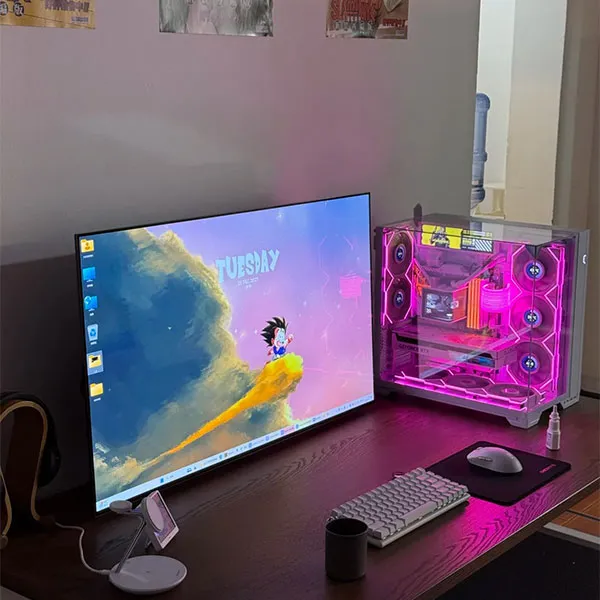
Mini PC :How Good Are The Power Supplies
Are Mini PC Power Supplies Reliable? Exploring Power Supplies in Mini PCs
Mini PC have surged in popularity thanks to their compact design, portability, and energy-efficient operation. But a common question arises: Are the power supplies in mini PCs as reliable as those found in larger desktop computer systems? This in-depth guide explores the world of mini PC power supplies, comparing them to traditional desktop units, examining their reliability, efficiency, and limitations. We’ll cover the use of external power supplies, internal power supplies, and discuss power management. The article provides useful information for PC power supply brands, 3C supermarkets, Computing equipment manufacturers, IoT device manufacturers, power supply wholesalers, agents, and owners of a large Internet cafe.
Table of Contents
1. What Makes Mini PC Power Supplies Different?
Mini PC power supplies differ significantly from their counterparts in traditional desktop computers primarily due to size constraints and power requirements. Traditional desktop PCs typically use ATX power supplies, which are relatively large, internal units with varying wattage ratings (often 300W to 1000W or more). Mini PCs, on the other hand, aim for a compact design, which necessitates different power supply designs.
Key differences include:
- Form Factor: Mini PCs often utilize external power adapters, similar to those used by laptops, or smaller internal PSUs like SFX or Flex ATX. The form factor is critical for a small design.
- Wattage: Mini PCs typically have lower power consumption than traditional desktops, with power requirements often ranging from as little as 10W to around 250W, depending on the components. They consume less power compared to traditional desktop units.
- Connectors: Mini PC power supplies may use different connectors than standard ATX units. External power supplies often use barrel connectors, while internal units might have smaller proprietary connectors.
These differences are driven by the need to minimize size and heat dissipation within the limited space of a mini PC.
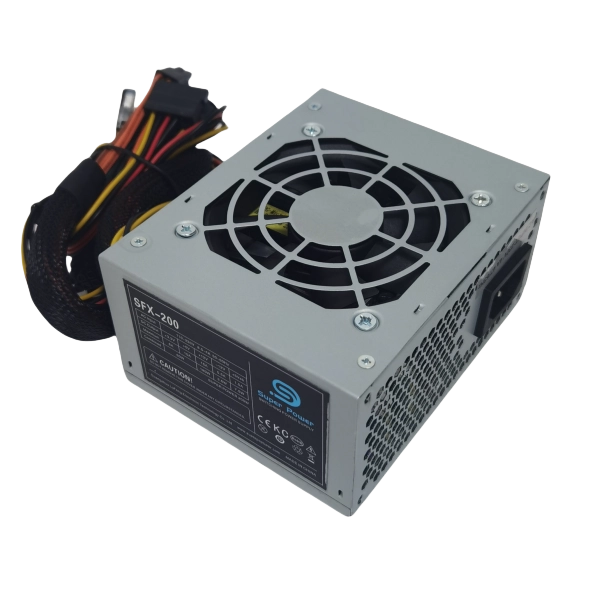
2. External vs. Internal Power Supplies in Mini PCs
Mini PC power supplies come in two main types: external and internal.
- External Power Adapters: These are the most common type found in mini PCs, especially lower-power models. They resemble laptop power bricks and convert AC power from the wall outlet to DC power for the mini PC. External power supplies offer several advantages:
- Smaller PC Size: Moving the power supply unit outside the PC case allows for a more compact design.
- Reduced Heat: The power adapter dissipates heat externally, reducing the thermal load inside the mini PC.
- Easier Replacement: If the power supply fails, it’s easy to replace the external adapter without opening the PC.
- Internal Power Supplies: Some higher-power mini PCs, particularly those designed for light gaming or more demanding tasks, use internal PSUs. These are typically smaller form factors like SFX or Flex ATX. While offering more power than external adapters, internal PSUs contribute to a larger overall PC size and generate more heat within the PC case.
The choice between internal and external power supplies depends on the mini PC’s intended use and power requirements. Many mini PC power supplies are external. The power supply provides the needed energy for the device’s use.
3. Power Efficiency and the 80 PLUS Certification
Energy efficiency is a crucial consideration for all power supplies, including those used in mini PCs. Modern mini PCs often come with high-efficiency power supplies. The 80 PLUS certification program provides a standardized way to measure power supply efficiency.
- 80 PLUS Certification: This certification guarantees that the power supply is at least 80% efficient at 20%, 50%, and 100% load, meaning it wastes less energy as heat.
- 80 PLUS Tiers: There are several 80 PLUS tiers, including Bronze, Silver, Gold, Platinum, and Titanium, with each tier representing increasing levels of efficiency.
- Benefits of High Efficiency:
- Lower Electricity Bills: Less energy is wasted.
- Less Heat Generation: Reduces thermal stress on components and potentially allows for quieter operation (less fan noise).
- Environmental Benefits: Reduced energy consumption contributes to a smaller carbon footprint.
While mini PCs generally have lower power consumption than traditional desktops, choosing a unit with an 80 PLUS certification, like 80 PLUS Gold, ensures optimal energy efficiency, and can further reduce operating costs and environmental impact. 80 PLUS certifications are important for a variety of reasons.
4. Reliability of Mini PC Power Supplies: Addressing Common Concerns
A common concern with mini PCs is whether their power supplies are often as reliable as those found in larger desktop systems. The answer is: it depends.
- Quality Varies: Like any electronic component, the reliability of a mini PC power supply depends on the quality of its design, components, and manufacturing. Power units can vary in quality.
- Reputable Brands: Choosing a mini PC from a reputable brand (e.g., Intel NUC, Dell, HP, ASUS, Gigabyte) generally increases the likelihood of getting a reliable power supply. These brands tend to use higher-quality components and have stricter quality control processes.
- Warranty: A longer warranty on the mini PC and its power supply is a good indicator of the manufacturer’s confidence in its reliability.
- External vs. Internal: External power adapters are often easier to replace if they fail, while internal PSUs might require more technical expertise to replace.
- Avoiding Overload: It is important not to exceed the maximum power output.
While mini PC power supplies can be just as reliable as those in larger PCs, it’s crucial to choose a mini PC from a reputable brand and pay attention to the power supply’s specifications and warranty.
5. Power Input Requirements: Voltage and Current
When selecting or replacing a mini PC power supply, it’s essential to understand the power input requirements, specifically voltage and current.
- Voltage (V): The electrical potential difference. Mini PCs typically use a specific DC voltage, often 12V, 19V, or 20V. Using the wrong voltage can damage the mini PC.
- Current (A): The rate of electrical flow. The mini PC’s power supply must be able to provide the current required by the system’s components.
- Wattage (W): Power is calculated by multiplying voltage and current (Watts = Volts x Amps). The power supply’s wattage rating indicates the maximum power it can deliver.
This information (voltage, current, and often wattage) is typically printed on the power adapter itself or listed in the mini PC’s specifications. It’s crucial to match or exceed these requirements when choosing a replacement power supply. Using a power supply with insufficient voltage or current can lead to instability or prevent the mini PC from powering on. Using a power supply with the wrong voltage can cause damage to the components.
6. Choosing the Right Power Supply for Your Mini PC
Here are some key considerations when choosing a power supply for your mini PC:
- Compatibility: Ensure the power supply is compatible with your mini PC in terms of voltage, current, and connector type. Check your mini PC’s specifications or user manual for this information.
- Wattage: Choose a power supply with sufficient wattage to meet your system’s power demands. Consider the power consumption of all internal components, including the processor, RAM, storage, and any connected peripherals. If you plan to use demanding applications, or light gaming, choose a PSU that meets those needs.
- Efficiency: Opt for a power supply with an 80 PLUS certification (Bronze, Silver, Gold, Platinum, or Titanium) for better energy efficiency.
- Form Factor (if internal): If your mini PC uses an internal PSU, ensure the form factor (e.g., SFX, Flex ATX) is compatible with your PC case.
- Brand Reputation: Choose a power supply from a reputable brand known for producing reliable units.
- Warranty: A longer warranty provides peace of mind and indicates the manufacturer’s confidence in the product’s reliability.
By carefully considering these factors, you can select a power supply that will provide stable and reliable power to your mini PC.
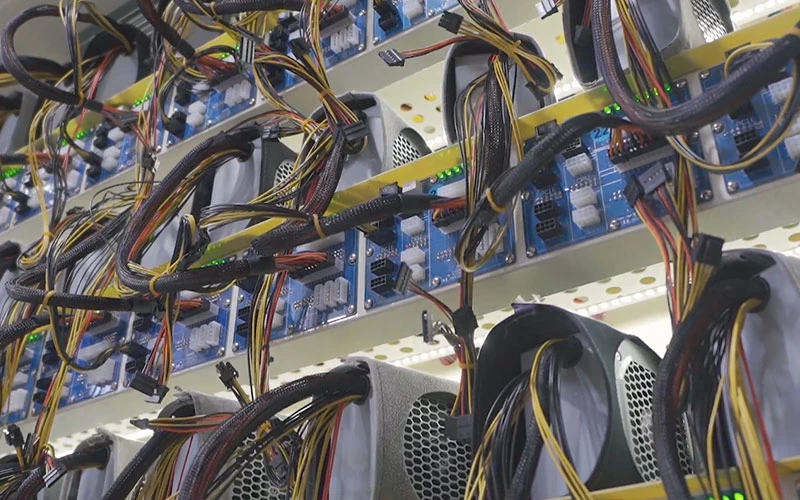
7. Mini PC Use Cases and Power Demands
Different use cases have different power demands:
- Basic Office/Web Browsing: Low power requirements (typically 10-65W). External power adapters are common. These systems are designed for everyday computing tasks.
- Home Entertainment (Media Center, Streaming): Moderate power requirements (30-90W), depending on the components. External power adapters are still common, but some higher-end models might use internal PSUs.
- Light Gaming: Power requirements can vary widely (65-250W or more), depending on the graphics solution. Some mini PCs designed for gaming use internal PSUs to accommodate more powerful components.
- Digital Signage/Industrial Control: Power requirements vary depending on the application, but reliability and often 24/7 operation are crucial.
- Thin Clients/Zero Clients: Very low power requirements (often under 10W), typically using external power adapters.
Understanding the intended use case helps determine the appropriate power supply wattage and form factor.
8. OEM Power Supplies: Custom Solutions for Mini PCs
As an OEM (PC power supply, ATX power supply, SFX power supply, FLEX power supply, TFX power supply, 80 Plus Gold) manufacturer, we specialize in providing custom power solutions for mini PCs and other compact devices. Our target customers include:
- PC power supply brands.
- 3C supermarkets.
- Computing equipment manufacturers.
- IoT device manufacturers.
- Power supply wholesalers.
- Agents.
- Large Internet cafes.
Here’s why partnering with us benefits your business:
- Customization: We can design and manufacture power supplies tailored to your specific requirements, including voltage, current, wattage, form factor, connectors, cabling, and branding.
- Quality: We use high-quality components and rigorous testing procedures to ensure the reliability and performance of our power supplies.
- Cost-Effectiveness: Buying directly from the manufacturer often results in better pricing, especially for bulk orders.
- Expert Support: Our team provides technical support and guidance throughout the design and manufacturing process.
Working directly with an OEM manufacturer allows you to obtain mini PC power supplies that are perfectly matched to your product’s needs, ensuring optimal performance, reliability, and cost-effectiveness.
9. The Future of Mini PC Power Supplies
The mini PC industry is constantly evolving, and power supply technology is evolving along with it. Some trends to watch include:
- Higher Efficiency: Continued improvements in power supply efficiency, with higher 80 PLUS ratings becoming more common.
- Smaller Form Factors: Ongoing miniaturization of power supply components, enabling even smaller and more powerful mini PCs.
- GaN (Gallium Nitride) Technology: GaN transistors are becoming increasingly popular in power supplies due to their higher efficiency and smaller size compared to traditional silicon transistors.
- USB-C Power Delivery: The increasing adoption of USB-C Power Delivery (PD) as a standard for charging and powering devices could lead to more mini PCs using USB-C PD for power input.
- Modular Internal PSUs: More modular designs for internal PSUs in higher-end mini-PCs.
These advancements will continue to improve the performance, efficiency, and portability of mini PCs.
10. Case Studies: Power Supply Solutions in Mini PC Applications
Let’s examine some real-world examples of power supply solutions in mini PC applications:
- Case Study 1 (Basic Office Mini PC): A compact mini PC designed for basic office tasks uses a 65W external power adapter. This provides sufficient power for the low-power processor, integrated graphics, and other components while keeping the PC size small and energy-efficient.
- Case Study 2 (Home Theater Mini PC): A mini PC used as a media center in a home theater setup utilizes a 90W external power adapter. This provides enough power for smooth 4K video playback and other media-related tasks.
- Case Study 3 (Gaming Mini PC): A high-performance mini PC designed for gaming uses a 200W internal SFX power supply. This allows the mini PC to accommodate a dedicated graphics card and a more powerful processor, providing a good gaming experience in a compact form factor.
- Case Study 4 (Industrial Mini PC): A ruggedized mini PC used in an industrial setting uses a custom-designed internal power supply with a wide input voltage range and enhanced protection features to ensure reliable operation in harsh environments.
- Case Study 5 (Computing equipment manufacturers): Partnered with us to produce custom power supplies to meet the needs of various computing devices.
These case studies illustrate the diverse power supply needs of different mini PC applications and the importance of choosing the right power supply for the specific use case.
Frequently Asked Questions
Are mini PC power supplies as reliable as desktop power supplies?
Yes, mini PC power supplies from reputable brands can be just as reliable as desktop power supplies. However, quality varies, so it’s important to choose a mini PC from a trusted manufacturer.
Can I use a laptop power adapter with my mini PC?
Not always. While both mini PCs and laptops often use external power adapters, you must ensure the adapter’s voltage, current, and connector type are compatible with your mini PC. Using the wrong adapter can damage your mini PC.
What is the typical wattage of a mini PC power supply?
Mini PC power supplies typically range from as low as 10W for very low-power models to around 250W for higher-performance units. Most fall in the 40-120W range.
Do mini PCs overheat?
Mini PCs are designed with heat dissipation in mind, but like any computer, they can overheat if the cooling system is inadequate or if they are placed in a poorly ventilated area. Choosing a mini PC with a good cooling solution and ensuring proper airflow around the device is important.
What is a “brickless” mini PC?
A “brickless” mini PC refers to a mini PC that uses an internal power supply instead of an external power adapter (the “brick”).
Do mini PCs use a lot of electricity?
Generally, no. Mini PCs are designed to be energy-efficient and typically have lower power consumption compared to traditional desktop computers.
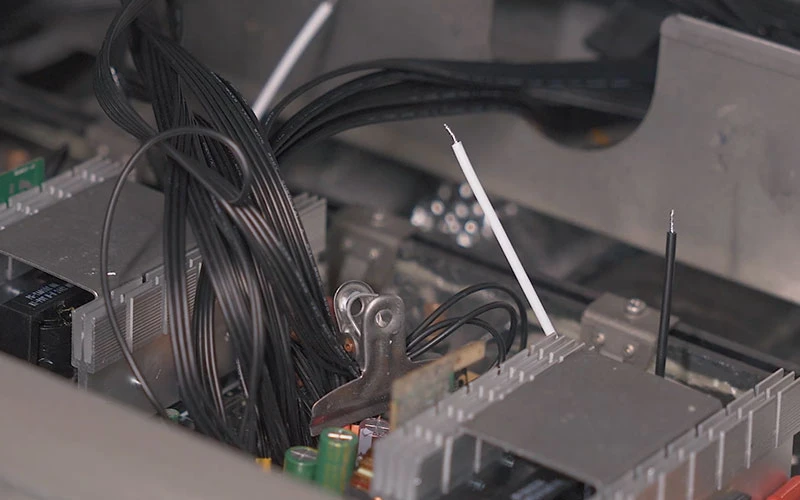
Summary
- Mini PC power supplies are often external power adapters, similar to those used by laptops, but some higher-powered mini PCs use internal PSUs.
- Mini PC power supplies are typically lower wattage than those in traditional desktops due to the lower power consumption of mini PC components.
- Reliability of mini PC power supplies depends on the quality of the components and manufacturing. Choosing a mini PC from a reputable brand is crucial.
- Power input requirements (voltage and current) are critical; using the wrong power adapter can damage your mini PC.
- Energy efficiency is important; look for mini PCs with 80 PLUS certifications.
- Different mini PC use cases (office, home entertainment, gaming, industrial) have different power demands.
- OEM manufacturers like us offer custom power supply solutions for mini PCs, allowing for tailored designs to meet specific needs.
- The future of mini PC power supplies includes higher efficiency, smaller form factors, and new technologies like GaN.
- Mini PCs offer range of connectivity options, including USB and HDMI ports.
- We can offer a PC POWER SUPPLY for any use case.
- We offer a power supply to fit all needs.
- Choosing the correct power supply is very important.

